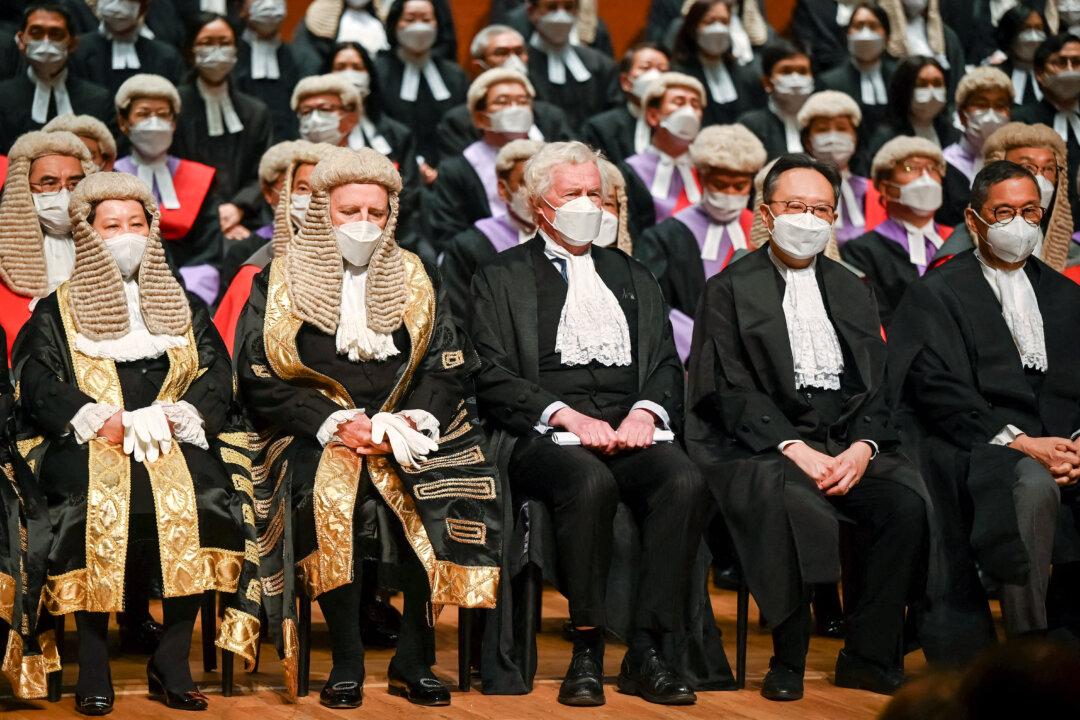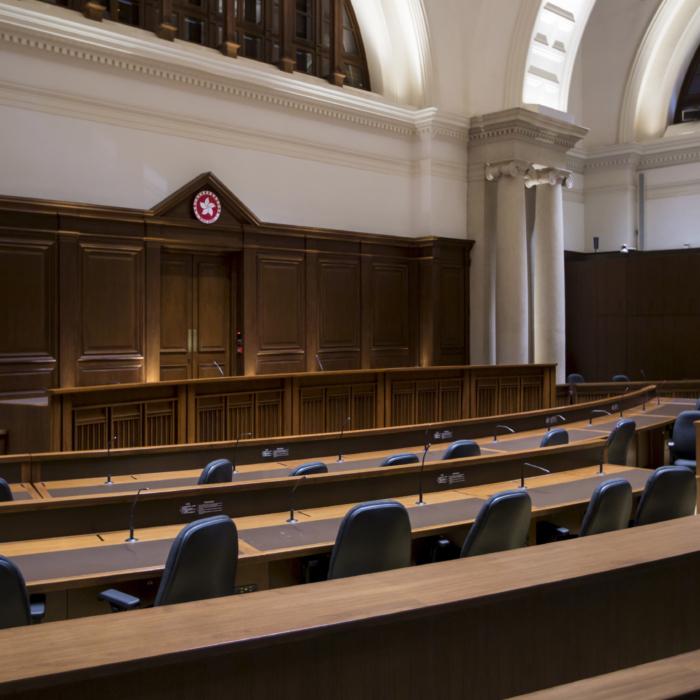It’s “no longer realistic” for foreign judges to help sustain the rule of law in Hong Kong, says a British judge who has just quit the city’s top court.
Lord Sumption, an overseas non-permanent judge of the Hong Kong Court of Final Appeal (HKCFA) until his resignation last week, said the rule of law in the former British colony is “in grave danger.”
Lord Sumption, along with his British colleague Lord Collins of Mapesbury, confirmed their resignation from HKCFA on Friday, with Lord Collins citing the city’s “political situation” as the reason.
Their resignations came after Hong Kong’s High Court convicted 14 legislators and activists, who were involved in unofficial pro-democracy primaries for Legislative Council (Legco) elections, of “conspiracy to commit subversion” in the largest single prosecution under the Beijing-imposed national security law since it took effect in 2020.
The national security law, which has been used to target pro-democracy activities, took effect on June 30, 2020. According to the Hong Kong government, by March 8, there had been 291 arrests under the law of suspects aged between 15 and 90.
Of these, over 170 people and five companies were charged and 112 people had been sentenced or convicted.
Among notable defendants is British citizen Jimmy Lai, founder of Next Digital and pro-democracy tabloid Apple Daily, who is on trial for allegedly colluding with foreign forces.
Mr. Lai, 76, has been jailed since 2020, and sentenced over convictions including fraud and participating in illegal assemblies.
Mr. Lai’s British barrister Tim Owen has been denied a visa over “security risks” despite previous courts’ permission for Mr. Lai to hire overseas lawyers.
Hong Kong authorities have issued warrants on 13 exiled pro-democracy activists, including UK residents, with a bounty of 1 million Hong Kong dollars (£102,000) on each of them.
The individuals were accused of national security law offences including incitement to secession and subversion, and collusion with foreign countries or external forces.
Since the national security law was imposed, several overseas non-permanent judges of HKCFA, the president and deputy president of the UK Supreme Court, have resigned, and human rights advocates have urged the rest of the foreign judges to follow suit.
In a report published in May, the Committee for Freedom in Hong Kong Foundation said Hong Kong’s legal system had been “reshaped to serve the Chinese Communist Party’s authoritarian regime.”
Explaining his decision to stay with the court until now, Lord Sumption said: “I remained on the court in the hope that the presence of overseas judges would help sustain the rule of law. I fear that this is no longer realistic. Others are less pessimistic. I hope that they are proved right.”
According to Lord Sumption, most judges in Hong Kong are “honourable people with all the liberal instincts of the common law,” but their freedom of action is “severely” limited as Beijing tightened its grip on Hong Kong.
The first problem, he said, is that the judges have to apply the National Security Law and a “hitherto defunct colonial law against sedition.”
Meanwhile, Beijing’s “interpretation” of the national security law, which reversed courts’ decision to allow Mr. Lai to hire British lawyers, “shows how far China will go in using this power against its opponents,” he added.
Lord Sumption also argued “the paranoia of the authorities” which led to the prosecution of news media and pro-democracy campaign leaders, has created an “oppressive atmosphere” that makes it challenging for judges to uphold judicial independence.
“There are continual calls for judicial ‘patriotism,’ It requires unusual courage for local judges to swim against such a strong political tide. Unlike the overseas judges, they have nowhere else to go.
“Intimidated or convinced by the darkening political mood, many judges have lost sight of their traditional role as defenders of the liberty of the subject, even when the law allows it,” he said, adding that “only lip-service is ever paid” to guarantees of freedom of speech and assembly in the Basic Law and the National Security Law.
He denied that the rule of law in Hong Kong has been compromised, and accused the British officials and politicians of “weaponising” the country’s judicial influence.
On Monday, Canada’s former Chief Justice Beverley McLachlin, also announced her retirement from HKCFA (CFA). The 80-year-old said she wanted to spend more time with her family, adding, that she continues to “have confidence in the members of the Court, their independence, and their determination to uphold the rule of law.”







